 Your new post is loading...
 Your new post is loading...
Introduction The gut system is home to trillions of beneficial bacteria that helps biotransformed food into nutrients for the body to function correctly. The gut is also in constant communication with the brain as the neuron signals are in a bi-directional wavelength that helps move the nutrients to their designated areas in the body. These designated areas help the body as well, as they have their own set of instructions to work correctly while the body is in motion. When gut disorders like metainflammation start to disrupt the signals going back and forth between the brain and gut, it can cause various issues that can cause the body to become dysfunctional and progress into chronic inflammation. Today’s article discusses what metainflammation does to the gut-brain axis and how inflammasomes play their role in the gut-liver axis in the body. Referring patients to qualified, skilled providers who specialize in gastroenterology treatments. We provide guidance to our patients by referring to our associated medical providers based on their examination when it’s appropriate. We find that education is critical for asking insightful questions to our providers. Dr. Alex Jimenez DC provides this information as an educational service only. Disclaimer Can my insurance cover it? Yes, it may. If you are uncertain, here is the link to all the insurance providers we cover. If you have any questions or concerns, please call Dr. Jimenez at 915-850-0900. Metainflammation Affecting The Gut-Brain Axis Have you been noticing an increase in food allergies or intolerances affecting you? How about feeling digestive problems rise on multiple occasions? Many of these symptoms are due to gut disorders like metainflammation, which can also affect the gut-brain axis in the body. Research studies have mentioned that the nervous system directly influences the gut through endocrine mediators interacting with microbial receptors. When metainflammation begins to affect the gut, it becomes the result of various gut dysbiosis like: - Increased sleep and mood disturbances
- Fatigue
- Decreased performance and exercise ability
- Nutrient deficiencies – vitamin D, B vitamins
- Thyroid imbalance
Other research studies have shown that since inflammation is a common factor for various disorders affecting the body, it can do much damage when the inflammatory cytokines affect the gut-brain axis and the immune system. Meta inflammation causes a decrease in intestinal absorption and contractility, but it can also increase the defective tight junctions and intestinal permeability. This causes gut issues like Crohn’s and celiac disease to rise, causing increased insulin and immune dysregulation and brain issues like sleep, cognition, mood disturbances, anxiety, and psychiatric disorders. General Disclaimer * The information herein is not intended to replace a one-on-one relationship with a qualified health care professional, licensed physician, and is not medical advice. We encourage you to make your own health care decisions based on your research and partnership with a qualified health care professional. Our information scope is limited to chiropractic, musculoskeletal, physical medicines, wellness, sensitive health issues, functional medicine articles, topics, and discussions. We provide and present clinical collaboration with specialists from a wide array of disciplines. Each specialist is governed by their professional scope of practice and their jurisdiction of licensure. We use functional health & wellness protocols to treat and support care for the injuries or disorders of the musculoskeletal system. Our videos, posts, topics, subjects, and insights cover clinical matters, issues, and topics that relate to and support, directly or indirectly, our clinical scope of practice.* Our office has made a reasonable attempt to provide supportive citations and has identified the relevant research study or studies supporting our posts. We provide copies of supporting research studies available to regulatory boards and the public upon request. We understand that we cover matters that require an additional explanation of how it may assist in a particular care plan or treatment protocol; therefore, to further discuss the subject matter above, please feel free to ask Dr. Alex Jimenez or contact us at 915-850-0900. Dr. Alex Jimenez DC, MSACP, CCST, IFMCP*, CIFM*, ATN* email: coach@elpasofunctionalmedicine.com Licensed in: Texas & New Mexico*
Introduction The human body requires nutritional healthy foods to provide energy for each component, like the muscles and tissues to move around. The gut system takes the nutrients and transports them to the different organs, systems, and body parts that need these nutrients to function correctly. The gut system is also in communication with the brain and the immune system, where they send information to each other back and forth and help the body stay healthy. When chronic issues start attacking the gut system, they can throw the body off course by causing inflammation, an overflow of gut bacteria, and other gut issues that can affect the gut and the body. Today’s article looks at how finding the proper diet can help the gut microbiome and the body and how different dietary components affect the gut microbiome. Referring patients to qualified, skilled providers who specialize in gastroenterology treatments. We guide our patients by referring to our associated medical providers based on their examination when it’s appropriate. We find that education is critical for asking insightful questions to our providers. Dr. Jimenez DC provides this information as an educational service only. Disclaimer Can my insurance cover it? Yes, it may. If you are uncertain, here is the link to all the insurance providers we cover. If you have any questions or concerns, please call Dr. Jimenez at 915-850-0900. How Does A Diet Help The Gut? Have you been feeling low on energy throughout the entire day? Have you felt inflammatory symptoms like acid reflux or IBS occurring in your gut? Or have you felt that you could be sensitive to your favorite type of food? When experiencing these symptoms constantly, it happens to affect your gut microbiome. Numerous factors can influence the gut microbiome; some are good while others are bad. One of the good influences for a healthy gut microbiome is a nutritional diet. A diet plays a massive role in the gut microbiota as it helps determine the gut’s composition and changes. Since diets have the most powerful influence on gut microbial communities in healthy human bodies, research studies have found gut microbiota is considered a dynamic system. Incorporating the proper diet can have a significant influence. Since about 75% of the food in a typical Western diet is limited or has no beneficial nutrients to the microbiota in the lower gut, most of it is explicitly comprised of refined carbohydrates that are already absorbed in the upper GI tract. After the food has been consumed, it will eventually reach the large intestines containing only small amounts of the necessary minerals and vitamins to maintain the gut microbiota. Additional research studies have found that since various dietary patterns do correspond with gut microbiota composition, it is up to the person’s habits to see what works for them and what doesn’t when it comes to eating healthy. General Disclaimer * The information herein is not intended to replace a one-on-one relationship with a qualified health care professional, licensed physician, and is not medical advice. We encourage you to make your own health care decisions based on your research and partnership with a qualified health care professional. Our information scope is limited to chiropractic, musculoskeletal, physical medicines, wellness, sensitive health issues, functional medicine articles, topics, and discussions. We provide and present clinical collaboration with specialists from a wide array of disciplines. Each specialist is governed by their professional scope of practice and their jurisdiction of licensure. We use functional health & wellness protocols to treat and support care for the injuries or disorders of the musculoskeletal system. Our videos, posts, topics, subjects, and insights cover clinical matters, issues, and topics that relate to and support, directly or indirectly, our clinical scope of practice.* Our office has made a reasonable attempt to provide supportive citations and has identified the relevant research study or studies supporting our posts. We provide copies of supporting research studies available to regulatory boards and the public upon request. We understand that we cover matters that require an additional explanation of how it may assist in a particular care plan or treatment protocol; therefore, to further discuss the subject matter above, please feel free to ask Dr. Alex Jimenez or contact us at 915-850-0900. Dr. Alex Jimenez DC, MSACP, CCST, IFMCP*, CIFM*, ATN* email: coach@elpasofunctionalmedicine.com Licensed in: Texas & New Mexico*
The central nervous system - CNS controls body and mind functions, voluntary movements, including walking, and involuntary movements, specifically the breakdown of foods and waste removal. Studies have found associations between spinal problems and gastrointestinal-GI tract/stomach issues that include: - Abdominal pain
- Constipation
- Difficulty controlling bowel movements
- Diarrhea
- Nausea
- Vomiting
Treating the underlying cause through chiropractic, non-surgical spinal decompression, and health coaching can bring pain relief, realign/heal the spine and alleviate stomach issues. Spinal Problems and Stomach Issues The spinal cord sends nerve signals throughout the body, including to and from the digestive system. Two types of nerves control the digestive system, extrinsic and intrinsic. Extrinsic nerves - Connect the digestive organs with the brain and spinal cord.
- Release chemicals that contract or relax the digestive system muscles.
Intrinsic nerves - Are a sub-nervous system of the intestinal tract.
- The nerves activate when the walls of the intestines become filled with food.
- They control the production of digestive juices.
- The nerves relay signals to speed up or slow down the food’s movement through the gut.
The intrinsic system can function independently and work without communication from the extrinsic nerves. However, the stomach and esophagus/food pipe depends on information from the extrinsic nerves. If there is injury, damage, or interference with the extrinsic nerve supply to the stomach, it can lead to stomach issues. Spinal cord injuries and compressed or herniated discs interrupt the communication between nerves/systems, which can lead to digestive and bowel problems, including: - Feeling full quickly after eating.
- Stomach pain
- Constipation
- Decreased appetite
- Difficulty moving waste through the colon or large intestine
- Hard stools
- Tenesmus - the sensation/feeling of having to have a bowel movement even though there is none.
Herniated Discs Herniated disc/s usually occurs in the neck or low back spinal area. Symptoms include: - Neck pain
- Back pain
- Pain spreads from the lower back through the buttocks, legs, and feet.
- Pain spreads from the neck through the shoulders, arms, and hands.
- Muscle weakness
- Muscle spasms
- Tingling or burning sensations
- Numbness
Chiropractic Spinal Decompression Chiropractic decompression therapy stretches the spine and manipulates its position to take pressure off the nerves and spinal discs. The decompression process creates negative pressure in the discs that retract herniated or bulging discs, allowing oxygen, water, and other healing nutrients to enter the disc and throughout the spine. The spinal decompression will help alleviate the stomach issues. Consultation from a health coach/nutritionist will recommend a diet that will aid in the disc/s healing, which is anti-inflammatory and easily digestible until the stomach problems are fully resolved. General Disclaimer * The information herein is not intended to replace a one-on-one relationship with a qualified health care professional, or licensed physician, and is not medical advice. We encourage you to make your own healthcare decisions based on your research and partnership with a qualified healthcare professional. Our information scope is limited to chiropractic, musculoskeletal, physical medicines, wellness, sensitive health issues, functional medicine articles, topics, and discussions. We provide and present clinical collaboration with specialists from a wide array of disciplines. Each specialist is governed by their professional scope of practice and their jurisdiction of licensure. We use functional health & wellness protocols to treat and support care for the injuries or disorders of the musculoskeletal system. Our videos, posts, topics, subjects, and insights cover clinical matters, issues, and topics that relate to and support, directly or indirectly, our clinical scope of practice.* Our office has made a reasonable attempt to provide supportive citations and has identified the relevant research study or studies supporting our posts. We provide copies of supporting research studies available to regulatory boards and the public upon request. We understand that we cover matters that require an additional explanation of how it may assist in a particular care plan or treatment protocol; therefore, to further discuss the subject matter above, please feel free to ask Dr. Alex Jimenez or contact us at 915-850-0900. Dr. Alex Jimenez DC, MSACP, CCST, IFMCP*, CIFM*, ATN* email: coach@elpasofunctionalmedicine.com Licensed in: Texas & New Mexico* References Browning, Kirsteen N, and R Alberto Travagli. “Central nervous system control of gastrointestinal motility and secretion and modulation of gastrointestinal functions.” Comprehensive Physiology vol. 4,4 (2014): 1339-68. doi:10.1002/cphy.c130055 Holmes, Gregory M, and Emily N Blanke. “Gastrointestinal dysfunction after spinal cord injury.” Experimental neurology vol. 320 (2019): 113009. doi:10.1016/j.expneurol.2019.113009 Lara, F J Pérez, et al. “Thoracic disk herniation, a not infrequent cause of chronic abdominal pain.” International surgery vol. 97,1 (2012): 27-33. doi:10.9738/CC98.1 Papadakos, Nikolaos, et al. “Thoracic disc prolapse presenting with abdominal pain: case report and review of the literature.” Annals of the Royal College of Surgeons of England vol. 91,5 (2009): W4-6. doi:10.1308/147870809X401038
Introduction The gut system is home to the organs and intestines that ensure that the consumed food is digested and absorbed into the bloodstream while being transported throughout the entire body. The gut system makes sure that the energy, growth, metabolism, and immune support are provided to the body and the immune system, endocrine system, and even the central nervous system for optimal performance. When pathogens enter the gut system, they can cause a variety of gut disorders like SIBO (small intestinal bacterial growth) to cause havoc in the gut system and cause the body to be dysfunctional. In this 2 part series, we will be looking at different treatments for SIBO and SIFO to optimize gut health. In Part 1, we looked at how SIBO and SIFO affect the gut and their symptoms. By referring patients to qualified and skilled providers who specialize in gastroenterology services. To that end, and when appropriate, we advise our patients to refer to our associated medical providers based on their examination. We find that education is the key to asking valuable questions to our providers. Dr. Alex Jimenez DC provides this information as an educational service only. Disclaimer Can my insurance cover it? Yes, it may. If you are uncertain, here is the link to all the insurance providers we cover. If you have any questions, please call Dr. Jimenez at 915-850-0900. SIBO/SIFO & The Intestines In the gut, trillions of bacteria live in the stomach and intestines that help make sure that the food is digested and absorbed into the bloodstream as nutrients. These bacteria help keep the gut and intestines healthy and the body functioning as they help regulate the digestive system. The intestines are the primary reason nutrients are absorbed into the bloodstream. When there is an overabundance of bacteria and fungi species in the intestines causing the gut to be dysfunctional, it’s known as SIBO (small intestinal bacterial overgrowth) and SIFO (small intestinal fungal overgrowth). Part 1 looked at what SIBO and SIFO are and how their symptoms impact the gut. Research shows that SIBO is a commonly diagnosed gastrointestinal disorder that causes maldigestion and malabsorption in the intestines. When there are more bad bacteria than good, it can cause gastrointestinal symptoms like gas, bloating, and abdominal pain in the gut system and overlap with gastrointestinal disorders causing gut discomfort. Hence treatments can help with eliminating SIBO and SIFO out of the intestines and provide relief to the gut. General Disclaimer * The information herein is not intended to replace a one-on-one relationship with a qualified health care professional, licensed physician, and is not medical advice. We encourage you to make your own health care decisions based on your research and partnership with a qualified health care professional. Our information scope is limited to chiropractic, musculoskeletal, physical medicines, wellness, sensitive health issues, functional medicine articles, topics, and discussions. We provide and present clinical collaboration with specialists from a wide array of disciplines. Each specialist is governed by their professional scope of practice and their jurisdiction of licensure. We use functional health & wellness protocols to treat and support care for the injuries or disorders of the musculoskeletal system. Our videos, posts, topics, subjects, and insights cover clinical matters, issues, and topics that relate to and support, directly or indirectly, our clinical scope of practice.* Our office has made a reasonable attempt to provide supportive citations and has identified the relevant research study or studies supporting our posts. We provide copies of supporting research studies available to regulatory boards and the public upon request. We understand that we cover matters that require an additional explanation of how it may assist in a particular care plan or treatment protocol; therefore, to further discuss the subject matter above, please feel free to ask Dr. Alex Jimenez or contact us at 915-850-0900. Dr. Alex Jimenez DC, MSACP, CCST, IFMCP*, CIFM*, ATN* email: coach@elpasofunctionalmedicine.com Licensed in: Texas & New Mexico*
Introduction The gut system makes sure that any food that is being digested gets turned into nutrient particles and is transported all over the entire body. The food particles will be secreted out of the body to prevent waste from building up in the gut. The primary function of the gut system is to make sure that any food is being transformed into nutrients to help with growth, metabolism, and immune support for a functional body. The gut system also has a bidirectional connection to the brain as they send information back and forth to each other and keep the organs from being dysfunctional. When harmful pathogens enter the gut system, they can develop into chronic issues and affect the gut and the body. In this article, we will be looking at what GERD is, its symptoms, and how it can affect stomach acid. By referring patients to qualified and skilled providers who specialize in gastroenterology services. To that end, and when appropriate, we advise our patients to refer to our associated medical providers based on their examination. We find that education is the key to asking valuable questions to our providers. Dr. Alex Jimenez DC provides this information as an educational service only. Disclaimer Can my insurance cover it? Yes, it may. If you are uncertain, here is the link to all the insurance providers we cover. If you have any questions, please call Dr. Jimenez at 915-850-0900. What Is GERD? Research studies have shown that GERD usually occurs when stomach acid frequently flows back and forth in the tube, where the mouth and the esophagus are connected, irritating the esophagus wall lining. So GERD or gastroesophageal reflux disease is the reflux of gastric contents into the esophagus in normal physiology and is defined as reflux leading to symptoms, esophageal mucosal injury, or both. The majority of individuals with GERD will show no abnormalities on upper endoscopy, and there are not any esophageal lesions (erosions, ulceration, intestinal metaplasia) for them to be diagnosed with GERD. Other research studies have also shown that GERD is a common digestive disorder that affects people worldwide and has troublesome symptoms and conditions that can affect a person’s quality of life. The Symptoms Of GERD Some of the typical symptoms of GERD that individuals will experience are heartburn, which is painful retrosternal burning or pressure sensation that may be angina‐like in quality, and regurgitation, which is the rising of gastric contents into the upper throat or mouth. Studies have shown that GERD can also be defined as mucosal damage due to the production of abnormal reflux of gastric contents. GERD can also be classified as NERD (non-erosive reflux disease) or ERD (erosive reflux disease) depending on how severe the presence or absence of esophageal mucosal damage GERD has caused in the esophagus. Some of the other symptoms that GERD can cause to the gut system and the body include: General Disclaimer * The information herein is not intended to replace a one-on-one relationship with a qualified health care professional, licensed physician, and is not medical advice. We encourage you to make your own health care decisions based on your research and partnership with a qualified health care professional. Our information scope is limited to chiropractic, musculoskeletal, physical medicines, wellness, sensitive health issues, functional medicine articles, topics, and discussions. We provide and present clinical collaboration with specialists from a wide array of disciplines. Each specialist is governed by their professional scope of practice and their jurisdiction of licensure. We use functional health & wellness protocols to treat and support care for the injuries or disorders of the musculoskeletal system. Our videos, posts, topics, subjects, and insights cover clinical matters, issues, and topics that relate to and support, directly or indirectly, our clinical scope of practice.* Our office has made a reasonable attempt to provide supportive citations and has identified the relevant research study or studies supporting our posts. We provide copies of supporting research studies available to regulatory boards and the public upon request. We understand that we cover matters that require an additional explanation of how it may assist in a particular care plan or treatment protocol; therefore, to further discuss the subject matter above, please feel free to ask Dr. Alex Jimenez or contact us at 915-850-0900. Dr. Alex Jimenez DC, MSACP, CCST, IFMCP*, CIFM*, ATN* email: coach@elpasofunctionalmedicine.com Licensed in: Texas & New Mexico*
Introduction The body’s primary job is to make sure that each organ system works correctly and does its job. One of the systems in the body is the gut system, and its position is to make sure that the food is being consumed and digested to be turned into nutrients and transported throughout the entire body. The gut system makes sure that the food is being digested and excreted out of the body to be functional. The digestion of the food being turned into particles is done through the bile acids in the stomach and the intestines (both large and small) to help turn the foods into nutrients and help regulate the entire digestive system. In this 2 part series, we will be looking at what bile acids are, their role in the gut, and what gall sludge is. Part 2 will look at how bile acids are hormones, sterolbiome, and bile reflux. By referring patients to qualified and skilled providers who specialize in gastroenterology services. To that end, and when appropriate, we advise our patients to refer to our associated medical providers based on their examination. We find that education is the key to asking valuable questions to our providers. Dr. Alex Jimenez DC provides this information as an educational service only. Disclaimer Can my insurance cover it? Yes, it may. If you are uncertain, here is the link to all the insurance providers we cover. If you have any questions, please call Dr. Jimenez at 915-850-0900. The Gut’s Role In The Body Since the human body is a complex ecosystem that is predominantly bacterial on a cellular and gene level, the various surfaces of the body are an interconnected network of ecosystems made up of human cells, bacteria, and archaea. These include: As research studies have found, the gut microbiota is home to a complex community of over trillions of microbial cells that help influence the human body’s physiology, metabolism, nutrition, and immune function to ensure that everything is working and functioning correctly. Through their capacity, the gut microbial community can also produce bile acid metabolites that are distinct from the liver. The produced bile acids from the liver can be thought of as an endocrine organ with the potential to alter host physiology, perhaps to their favor. General Disclaimer * The information herein is not intended to replace a one-on-one relationship with a qualified health care professional, licensed physician, and is not medical advice. We encourage you to make your own health care decisions based on your research and partnership with a qualified health care professional. Our information scope is limited to chiropractic, musculoskeletal, physical medicines, wellness, sensitive health issues, functional medicine articles, topics, and discussions. We provide and present clinical collaboration with specialists from a wide array of disciplines. Each specialist is governed by their professional scope of practice and their jurisdiction of licensure. We use functional health & wellness protocols to treat and support care for the injuries or disorders of the musculoskeletal system. Our videos, posts, topics, subjects, and insights cover clinical matters, issues, and topics that relate to and support, directly or indirectly, our clinical scope of practice.* Our office has made a reasonable attempt to provide supportive citations and has identified the relevant research study or studies supporting our posts. We provide copies of supporting research studies available to regulatory boards and the public upon request. We understand that we cover matters that require an additional explanation of how it may assist in a particular care plan or treatment protocol; therefore, to further discuss the subject matter above, please feel free to ask Dr. Alex Jimenez or contact us at 915-850-0900. Dr. Alex Jimenez DC, MSACP, CCST, IFMCP*, CIFM*, ATN* email: coach@elpasofunctionalmedicine.com Licensed in: Texas & New Mexico*
Introduction In the body, the digestive system makes sure that the food that is being consumed is digested in the gastrointestinal (GI) tract and the nutrients, minerals, and vitamins are being transported all throughout the entire body. Once that is done, the excess unused food is excreted out to avoid any issues that the gut or the body has encountered. Most of the time, the food a person eats can cause gut issues in the stomach and if a person continues to consume the same food, it can cause inflammation in the gut. When this happens, the inflammatory cytokines will attach themselves to the gut intestinal permeability and the immune system will begin to attack the intestinal permeability causing the toxins and gut bacteria to leak out and progress the gut inflammation further turning into IBD (inflammatory bowel disease). In this 2 part series, we will be taking a look at the pathophysiology of IBD (inflammatory bowel disease) and how its symptoms affect the gut system. Part 2 will be taking a look at how IBD affects the other organs and what kind of therapeutic treatments can help dampen the symptoms of IBD. By referring patients to qualified and skilled providers who specialize in gastroenterology services. To that end, and when appropriate, we advise our patients to refer to our associated medical providers based on their examination. We find that education is the key to asking valuable questions to our providers. Dr. Alex Jimenez DC provides this information as an educational service only. Disclaimer Can my insurance cover it? Yes, it may. If you are uncertain, here is the link to all the insurance providers we cover. If you have any questions, please call Dr. Jimenez at 915-850-0900. What Is IBD? IBD or inflammatory bowel disease is when the digestive tract has chronic inflammation all over the digestive tract. When inflammation is in the body, it can be beneficial and harmful, depending on how severe it is. When inflammation is in its acute form, the immune system will send out the inflammatory cytokines to the injured area of the body, where it will attack the pathogen, causing the affected area to be red and hot to the touch for a few minutes to hours, depending on how severe it is. In its chronic state, however, inflammation can be caused either by a food allergen or sensitivity that can upset the gut system, an acute inflammation that hasn’t been treated, a person who has been exposed to toxins, or even an autoimmune disorder that can affect the body. When these factors start to cause the immune system to attack the healthy tissues like the gut permeability, it can lead to IBD. Research studies have shown that the exact cause of IBD is unknown, but factors can cause IBD to progress and aggravate the gut to develop IBD. Some of the risk factors that can exacerbate IBD are: - Age
- Family history
- Environmental triggers
- Compromised immune system
Other research studies have found that IBD is defined as chronic intestinal inflammation of the small and large intestines causing the body’s immune system to attack the digestive system, thus encompassing two primary inflammatory forms known as Crohn’s disease and ulcerative colitis. When chronic inflammation in the gut, the epithelial cells are secreted out of the intestinal wall lining, causing the immune system to attack the intestines. This will lead to the development of Crohn’s disease and ulcerative colitis. General Disclaimer * The information herein is not intended to replace a one-on-one relationship with a qualified health care professional, licensed physician, and is not medical advice. We encourage you to make your own health care decisions based on your research and partnership with a qualified health care professional. Our information scope is limited to chiropractic, musculoskeletal, physical medicines, wellness, sensitive health issues, functional medicine articles, topics, and discussions. We provide and present clinical collaboration with specialists from a wide array of disciplines. Each specialist is governed by their professional scope of practice and their jurisdiction of licensure. We use functional health & wellness protocols to treat and support care for the injuries or disorders of the musculoskeletal system. Our videos, posts, topics, subjects, and insights cover clinical matters, issues, and topics that relate to and support, directly or indirectly, our clinical scope of practice.* Our office has made a reasonable attempt to provide supportive citations and has identified the relevant research study or studies supporting our posts. We provide copies of supporting research studies available to regulatory boards and the public upon request. We understand that we cover matters that require an additional explanation of how it may assist in a particular care plan or treatment protocol; therefore, to further discuss the subject matter above, please feel free to ask Dr. Alex Jimenez or contact us at 915-850-0900. Dr. Alex Jimenez DC, MSACP, CCST, IFMCP*, CIFM*, ATN* email: coach@elpasofunctionalmedicine.com Licensed in: Texas & New Mexico*
Introduction The digestive system is home to the gut, the gastrointestinal (GI) tract, the liver, the intestines, and other organs that make sure that the consumed food is being digested and the nutrients from the digested foods are being transported to all the necessary systems, muscles, tissues, and cells while the bile is excreted out of the body. In this 2 part series, we will be taking a look at the GI tract and how each organ functions in the digestive system as well as how the enteric nervous system and how each muscle and cells work together. Part 2 will be taking a look at how gastrointestinal disorders can affect the gut and what kind of treatments dampen their effects. By referring patients to qualified and skilled providers who specialized in gastroenterology services. To that end, and when appropriate, we advise our patients to refer to our associated medical providers based on their examination. We find that education is the key to asking valuable questions to our providers. Dr. Alex Jimenez DC provides this information as an educational service only. Disclaimer Can my insurance cover it? Yes, it may. In case you are uncertain here is the link to all the insurance providers we cover. If you have any questions, please call Dr. Jimenez at 915-850-0900. What Is The GI Tract? So the gastrointestinal tract or the GI tract is part of the digestive system where it’s a long tube that is connecting to hollow organs to not only digest food but also excrete it out of the body as well. Research studies have shown that the GI tract works together with the central nervous system and the circulatory system by utilizing the body’s nerves, hormones, bacteria, blood, and organs to help digest the foods and liquids while providing the nutrients to make the body work properly. The sphincters in the GI tract include: - Upper esophageal
- Lower esophageal
- Pylorus
- Sphincter of Oddi
- Ileocecal valve
- Internal and external anal sphincters
The GI motility is a tightly integrated system that is regulated by the enteric nervous system while being responsible for mixing, propulsive, and organized patterns of movements. Other research studies have shown that the GI tract in the digestive system helps the body receive nutrients like carbohydrates, proteins, fats, minerals, and vitamins to help the body absorb them to promote new energy, growth, and repairing the cellular structure. Some of the organs that help the GI tract stay functional are: - Esophagus
- Stomach
- Small intestine
- Colon
- Anorectum
General Disclaimer * The information herein is not intended to replace a one-on-one relationship with a qualified health care professional, licensed physician, and is not medical advice. We encourage you to make your own health care decisions based on your research and partnership with a qualified health care professional. Our information scope is limited to chiropractic, musculoskeletal, physical medicines, wellness, sensitive health issues, functional medicine articles, topics, and discussions. We provide and present clinical collaboration with specialists from a wide array of disciplines. Each specialist is governed by their professional scope of practice and their jurisdiction of licensure. We use functional health & wellness protocols to treat and support care for the injuries or disorders of the musculoskeletal system. Our videos, posts, topics, subjects, and insights cover clinical matters, issues, and topics that relate to and support, directly or indirectly, our clinical scope of practice.* Our office has made a reasonable attempt to provide supportive citations and has identified the relevant research study or studies supporting our posts. We provide copies of supporting research studies available to regulatory boards and the public upon request. We understand that we cover matters that require an additional explanation of how it may assist in a particular care plan or treatment protocol; therefore, to further discuss the subject matter above, please feel free to ask Dr. Alex Jimenez or contact us at 915-850-0900. Dr. Alex Jimenez DC, MSACP, CCST, IFMCP*, CIFM*, ATN* email: coach@elpasofunctionalmedicine.com Licensed in: Texas & New Mexico*
Introduction The gastrointestinal tract is part of the digestive system and its primary job is to make sure that the food is being consumed and digested to be turned into vitamins and nutrients for the body. The gastrointestinal tract also provides a protective layer in the intestinal permeability to prevent toxins and unwanted pathogens from leaking out of the gut and causing inflammation as well as other problems to the body. One of these pathogens is known as eosinophilic esophagitis and it can cause the gastrointestinal tract to be dysfunctional. In this article, we will be taking a look at what eosinophilic esophagitis is, its symptoms, and what kind of treatment to dampen its effects on the body. By referring patients to qualified and skilled providers who specialized in gastroenterology services. To that end, and when appropriate, we advise our patients to refer to our associated medical providers based on their examination. We find that education is the key to asking valuable questions to our providers. Dr. Alex Jimenez DC provides this information as an educational service only. Disclaimer Can my insurance cover it? Yes, in case you are uncertain here is the link to all the insurance providers we cover. If you have any questions, please call Dr. Jimenez at 915-850-0900. What Is Eosinophilic Esophagitis? In the digestive system, the esophagus’s main job is to make sure that when a person eats the food, the consumed food is traveling down to the stomach to be fully digested into nutrients for the body. When there are unwanted pathogens that start to cause damage to the esophagus, it is known as eosinophilic esophagitis. Research studies have shown that eosinophilic esophagitis is a chronic immune disease that is often characterized by a dense eosinophilic infiltrate into the esophagus. Some of the factors that can cause eosinophilic esophagitis to occur in the throat are: - Genes
- Allergies
- Mast cells
- Acid reflux
Other research studies show that eosinophilic esophagitis causes eosinophil, a type of white blood cell to build up around the lining of the tube that connects the mouth to the esophagus. This build will cause injury or inflammation to the esophageal tissue, causing a person to have a difficult time swallowing their foods. General Disclaimer * The information herein is not intended to replace a one-on-one relationship with a qualified health care professional, licensed physician, and is not medical advice. We encourage you to make your own health care decisions based on your research and partnership with a qualified health care professional. Our information scope is limited to chiropractic, musculoskeletal, physical medicines, wellness, sensitive health issues, functional medicine articles, topics, and discussions. We provide and present clinical collaboration with specialists from a wide array of disciplines. Each specialist is governed by their professional scope of practice and their jurisdiction of licensure. We use functional health & wellness protocols to treat and support care for the injuries or disorders of the musculoskeletal system. Our videos, posts, topics, subjects, and insights cover clinical matters, issues, and topics that relate to and support, directly or indirectly, our clinical scope of practice.* Our office has made a reasonable attempt to provide supportive citations and has identified the relevant research study or studies supporting our posts. We provide copies of supporting research studies available to regulatory boards and the public upon request. We understand that we cover matters that require an additional explanation of how it may assist in a particular care plan or treatment protocol; therefore, to further discuss the subject matter above, please feel free to ask Dr. Alex Jimenez or contact us at 915-850-0900. Dr. Alex Jimenez DC, MSACP, CCST, IFMCP*, CIFM*, ATN* email: coach@elpasofunctionalmedicine.com Licensed in: Texas & New Mexico*
Introduction The gut and the brain have two different jobs that do different functions in the body but, have a bidirectional communication with each other. The brain is part of the central nervous system that sends out neuron signals all throughout the entire body. These neuron signals make sure that everything is working properly, from the heart beating to blood pressure being regulated. The gut is part of the digestive system and it makes sure that food is being digested properly, while the beneficial good bacteria is protecting the gut from harmful pathogens. When unwanted pathogens start to affect either the brain, the gut, or both, it can cause problems to the body making it dysfunctional and causing the individual unwanted pain. In this 2 part series, we will be taking a look at the different factors that can affect the gut-brain axis. Part 1 took a look at what the gut-brain axis is and how does it function in the body. By referring patients to qualified and skilled providers who specialized in gastroenterology services. To that end, and when appropriate, we advise our patients to refer to our associated medical providers based on their examination. We find that education is the key to asking valuable questions to our providers. Dr. Alex Jimenez DC provides this information as an educational service only. Disclaimer Can my insurance cover it? Yes, in case you are uncertain here is the link to all the insurance providers we cover. If you have any questions, please call Dr. Jimenez at 915-850-0900. The Gut-Brain Connection The gut-brain connection provides a bidirectional connection to both the brain and the gut. Both of these organs continuously send each other signals back and forth in order to make sure that the body is functioning properly while also doing their jobs as well. Research studies show that the gut-brain connection is also known as the enteric nervous system and what it does is that it’s a network of nerves, neurons, and neurotransmitters that extends all over the entire digestive tract. The enteric nervous system is also referred to as a ”second brain”, which is the gut as it is in constant communication to the brain and plays a major key role in diseases and mental health for individuals. General Disclaimer * The information herein is not intended to replace a one-on-one relationship with a qualified health care professional, licensed physician, and is not medical advice. We encourage you to make your own health care decisions based on your research and partnership with a qualified health care professional. Our information scope is limited to chiropractic, musculoskeletal, physical medicines, wellness, sensitive health issues, functional medicine articles, topics, and discussions. We provide and present clinical collaboration with specialists from a wide array of disciplines. Each specialist is governed by their professional scope of practice and their jurisdiction of licensure. We use functional health & wellness protocols to treat and support care for the injuries or disorders of the musculoskeletal system. Our videos, posts, topics, subjects, and insights cover clinical matters, issues, and topics that relate to and support, directly or indirectly, our clinical scope of practice.* Our office has made a reasonable attempt to provide supportive citations and has identified the relevant research study or studies supporting our posts. We provide copies of supporting research studies available to regulatory boards and the public upon request. We understand that we cover matters that require an additional explanation of how it may assist in a particular care plan or treatment protocol; therefore, to further discuss the subject matter above, please feel free to ask Dr. Alex Jimenez or contact us at 915-850-0900. Dr. Alex Jimenez DC, MSACP, CCST, IFMCP*, CIFM*, ATN* email: coach@elpasofunctionalmedicine.com Licensed in: Texas & New Mexico*
Introduction The gut system’s main function is to digest food to be turned into nutrients in the body and excrete the waste out of the body. The gastrointestinal tract or GI tract makes sure that the beneficial bacteria are keeping the gut happy and healthy while the intestinal permeability is keeping the toxins and unwanted pathogens out. However, when pathogens do enter the gut can start to disrupt the intestinal wall permeability, it can cause gut inflammation and other chronic illnesses to pop up over the gut and cause a person to be in pain. In this 2 part series, we will be taking a look at ways to keep a healthy gut intact. In Part 1, we took a look at what is the GI tract and its role on the gut. By referring patients to qualified and skilled providers who specialized in gastroenterology services. To that end, and when appropriate, we advise our patients to refer to our associated medical providers based on their examination. We find that education is the key to asking valuable questions to our providers. Dr. Alex Jimenez DC provides this information as an educational service only. Disclaimer Can my insurance cover it? Yes, in case you are uncertain here is the link to all the insurance providers we cover. If you have any questions, please call Dr. Jimenez at 915-850-0900. The Roles Of GI Microbiota Since the gut system is home to the GI tract, research studies have shown that the GI microbiota plays a role in the body’s physiology, metabolism, and nutrition. The gut makes sure that the body is getting the right amount of nutrients while producing beneficial gut flora to keep everything working. Other research studies have found that gut microbiota has been associated with gastrointestinal diseases like IBD (inflammatory bowel disease), SIBO, metabolic disorders, and neurological disorders just to name a few. The gut is connected to the entire body as it plays a functional role in a person’s health as it is one of the main sources where inflammation seems to target the most. General Disclaimer * The information herein is not intended to replace a one-on-one relationship with a qualified health care professional, licensed physician, and is not medical advice. We encourage you to make your own health care decisions based on your research and partnership with a qualified health care professional. Our information scope is limited to chiropractic, musculoskeletal, physical medicines, wellness, sensitive health issues, functional medicine articles, topics, and discussions. We provide and present clinical collaboration with specialists from a wide array of disciplines. Each specialist is governed by their professional scope of practice and their jurisdiction of licensure. We use functional health & wellness protocols to treat and support care for the injuries or disorders of the musculoskeletal system. Our videos, posts, topics, subjects, and insights cover clinical matters, issues, and topics that relate to and support, directly or indirectly, our clinical scope of practice.* Our office has made a reasonable attempt to provide supportive citations and has identified the relevant research study or studies supporting our posts. We provide copies of supporting research studies available to regulatory boards and the public upon request. We understand that we cover matters that require an additional explanation of how it may assist in a particular care plan or treatment protocol; therefore, to further discuss the subject matter above, please feel free to ask Dr. Alex Jimenez or contact us at 915-850-0900. Dr. Alex Jimenez DC, MSACP, CCST, IFMCP*, CIFM*, ATN* email: coach@elpasofunctionalmedicine.com Licensed in: Texas & New Mexico*
Introduction The brain’s primary function in the central nervous system is to transport and transmit neuron signals all throughout the entire body. These neuron signals help the body, gut, immune, endocrine, and musculoskeletal systems do their jobs properly and send the information back to the brain. When there are disruptors that enter the body and attach to the neuron signals, they can disrupt the signals while traveling to the brain. When this happens, the brain will develop neurodegenerative disorders over time and cause havoc on the body making it dysfunctional. There are many therapeutic ways to dampen the effects of neurodegenerative disorders and one of them is through regenerative HCTP therapy. In this article, we will be taking a look at what is the pathology of neurodegenerative disorders and how regenerative HCTP therapy can affect neurodegenerative disorders. By referring patients to qualified and skilled providers who specialized in neurological services. To that end, and when appropriate, we advise our patients to refer to our associated medical providers based on their examination. We find that education is the key to asking valuable questions to our providers. Dr. Jimenez DC provides this information as an educational service only. Disclaimer Can my insurance cover it? Yes, in case you are uncertain here is the link to all the insurance providers we cover. If you have any questions, please call Dr. Jimenez at 915-850-0900. What Is Neurodegenerative Disease? According to WHO global study, 8 out of 10 disorders in the 3 highest disability classes are neurologic problems. Research studies have found that neurodegenerative diseases occur when the brain’s nerve cells start to lose function and die over time. Neurodegenerative diseases can vary from the symptoms that a person is experiencing and can be numerous risk factors as well. All over the world, there are over 276 million people that are disabled due to neurodegenerative diseases since it is a progressive age disease. Other studies have found that neurodegenerative diseases can be frequently observed due to ischemic, metabolic, toxic, infectious, and traumatic insults of the brain. As many people start to live longer, many neurodegenerative diseases will begin to increase over time due to age. General Disclaimer * The information herein is not intended to replace a one-on-one relationship with a qualified health care professional, licensed physician, and is not medical advice. We encourage you to make your own health care decisions based on your research and partnership with a qualified health care professional. Our information scope is limited to chiropractic, musculoskeletal, physical medicines, wellness, sensitive health issues, functional medicine articles, topics, and discussions. We provide and present clinical collaboration with specialists from a wide array of disciplines. Each specialist is governed by their professional scope of practice and their jurisdiction of licensure. We use functional health & wellness protocols to treat and support care for the injuries or disorders of the musculoskeletal system. Our videos, posts, topics, subjects, and insights cover clinical matters, issues, and topics that relate to and support, directly or indirectly, our clinical scope of practice.* Our office has made a reasonable attempt to provide supportive citations and has identified the relevant research study or studies supporting our posts. We provide copies of supporting research studies available to regulatory boards and the public upon request. We understand that we cover matters that require an additional explanation of how it may assist in a particular care plan or treatment protocol; therefore, to further discuss the subject matter above, please feel free to ask Dr. Alex Jimenez or contact us at 915-850-0900. Dr. Alex Jimenez DC, MSACP, CCST, IFMCP*, CIFM*, ATN* email: coach@elpasofunctionalmedicine.com Licensed in: Texas & New Mexico*
Introduction The brain is part of the central nervous system and its primary function is to transmit neuron signals all throughout the entire body. The neuron signals make sure that not only the body is functioning, but that the heart is beating regularly, the gut is digesting the food, blood pressure and the feeling sensations are normal. When there are unwanted pathogens that attach themselves to the neuron signals and travel to the brain, can develop into neurodegenerative diseases over time. Luckily there are therapeutic ways to dampen the effects of neurodegenerative diseases and one of them is low laser light therapy. In this 2 part series, we will be taking a look at how light therapy can be beneficial for individuals that are suffering from neurodegenerative diseases. Part 1 took a look at how different microbial infections are involved in neurodegeneration to the brain. By referring patients to qualified and skilled providers who specialized in neurological services. To that end, and when appropriate, we advise our patients to refer to our associated medical providers based on their examination. We find that education is the key to asking valuable questions to our providers. Dr. Jimenez DC provides this information as an educational service only. Disclaimer Can my insurance cover it? Yes, in case you are uncertain here is the link to all the insurance providers we cover. If you have any questions, please call Dr. Jimenez at 915-850-0900. Low-Laser Therapy For The Brain Seeing how neurological and neuropsychiatric diseases are degenerative in nature that are characterized by protein aggregation, there are novel methods to treat protein aggregation and downstream issues since the human body utilizes light energy to catalyze chemical reactions and help dampen the effects of protein aggregation. This is referred to as “photobiomodulation” or low laser therapy. Low laser therapy has endogenous molecules that have different absorption peaks throughout the electromagnetic spectrum, thus resulting in different physiological effects: - Melanin (~340nm)
- Unbound hemoglobin (~430nm)
- Water (~1900nm)
- Reduced mitochondrial Cytochrome C (~605nm)
Studies have found that low laser therapy when applied to the forehead and scalp areas of an individual with traumatic brain injury has helped improve cognitive function in the brain. By altering human physiology with light is a potent therapeutic for numerous conditions as the common “therapeutic range” of laser wavelengths for treating disease is from ~600nm to 1000nm. These wavelengths readily penetrate tissues while hitting disease-relevant biological targets. General Disclaimer * The information herein is not intended to replace a one-on-one relationship with a qualified health care professional, licensed physician, and is not medical advice. We encourage you to make your own health care decisions based on your research and partnership with a qualified health care professional. Our information scope is limited to chiropractic, musculoskeletal, physical medicines, wellness, sensitive health issues, functional medicine articles, topics, and discussions. We provide and present clinical collaboration with specialists from a wide array of disciplines. Each specialist is governed by their professional scope of practice and their jurisdiction of licensure. We use functional health & wellness protocols to treat and support care for the injuries or disorders of the musculoskeletal system. Our videos, posts, topics, subjects, and insights cover clinical matters, issues, and topics that relate to and support, directly or indirectly, our clinical scope of practice.* Our office has made a reasonable attempt to provide supportive citations and has identified the relevant research study or studies supporting our posts. We provide copies of supporting research studies available to regulatory boards and the public upon request. We understand that we cover matters that require an additional explanation of how it may assist in a particular care plan or treatment protocol; therefore, to further discuss the subject matter above, please feel free to ask Dr. Alex Jimenez or contact us at 915-850-0900. Dr. Alex Jimenez DC, MSACP, CCST, IFMCP*, CIFM*, ATN* email: coach@elpasofunctionalmedicine.com Licensed in: Texas & New Mexico*
|
Introduction The gut system is a massive ecosystem that helps modulate the body’s immune system and metabolic changes that the body itself is going through. The gut system provides the body with the necessary nutrients to function correctly and transports these nutrients to their respective sections like the endocrine system, the nervous system, and the musculoskeletal system to do their jobs. When gut disorders start to affect the intestinal walls, it can cause the inflammatory cytokines to attack the gut walls due to bacteria and nutrients leaking out of the tight junctions. Fortunately, there are therapeutic ways to help the gut system and prevent inflammation from causing more issues in the gut. Today’s article looks at gut metainflammation and how nutraceuticals can help many individuals with gut metainflammation. Referring patients to qualified, skilled providers who specialize in gastroenterology treatments. We provide guidance to our patients by referring to our associated medical providers based on their examination when it’s appropriate. We find that education is critical for asking insightful questions to our providers. Dr. Alex Jimenez DC provides this information as an educational service only. Disclaimer Can my insurance cover it? Yes, it may. If you are uncertain, here is the link to all the insurance providers we cover. If you have any questions or concerns, please call Dr. Jimenez at 915-850-0900. What Is Gut Metainflammation? Does your gut system feel sore or tender to the touch? Do ordinary factors like stress, sleep problems, hormone imbalances, and cardiovascular issues affect you more than they should have? Have you experienced inflammatory gut issues like IBS or leaky gut? Having any gut disorder is no laughing matter for your health. When the gut system is experiencing chronic low‐grade inflammatory sequela, this is what gut metainflammation is in the body. Gut metainflammation is defined as an over‐activation of immunity in the gut that leads to increased production of inflammatory cytokines, thus referring to metabolism-induced inflammation. Research studies have shown that when the gut is experiencing metainflammation, it causes a disturbance to the neurometabolic pathways. This causes an increase in the aging processes and metabolic signaling issues the gut is trying to provide for the body. Other research studies have shown that metainflammation is one of the primary markers for metabolic disorders like obesity, type 2 diabetes, and NAFLD (nonalcoholic fatty liver disease). Gut metainflammation also causes an increase in peripheral and central inflammation that can cause gut disorders like leaky gut to allow bacteria and toxins to enter the bloodstream, thus leading to peripheral and central inflammation of the body. General Disclaimer * The information herein is not intended to replace a one-on-one relationship with a qualified health care professional, licensed physician, and is not medical advice. We encourage you to make your own health care decisions based on your research and partnership with a qualified health care professional. Our information scope is limited to chiropractic, musculoskeletal, physical medicines, wellness, sensitive health issues, functional medicine articles, topics, and discussions. We provide and present clinical collaboration with specialists from a wide array of disciplines. Each specialist is governed by their professional scope of practice and their jurisdiction of licensure. We use functional health & wellness protocols to treat and support care for the injuries or disorders of the musculoskeletal system. Our videos, posts, topics, subjects, and insights cover clinical matters, issues, and topics that relate to and support, directly or indirectly, our clinical scope of practice.* Our office has made a reasonable attempt to provide supportive citations and has identified the relevant research study or studies supporting our posts. We provide copies of supporting research studies available to regulatory boards and the public upon request. We understand that we cover matters that require an additional explanation of how it may assist in a particular care plan or treatment protocol; therefore, to further discuss the subject matter above, please feel free to ask Dr. Alex Jimenez or contact us at 915-850-0900. Dr. Alex Jimenez DC, MSACP, CCST, IFMCP*, CIFM*, ATN* email: coach@elpasofunctionalmedicine.com Licensed in: Texas & New Mexico*
Introduction The gut system is home to many beneficial bacteria that ensure that everything is working correctly. The organs that make up the gut system help transport the nutrients and oxygenated blood to the muscles, tissues, vessels, and nerve roots that allow the body to function. The gut also communicates with the brain and the immune system to provide the necessary energy to make the body move from one place to another. When disruptive factors start to mess with the gut microbiota, it can cause inflammatory factors and other gut-related issues to wreck the intestinal walls of the gut and affect the overall health of a person. Today’s article post will focus on the gut microbiome’s role in the body, the metabolic functioning of gut bacteria, and how different factors can affect the gut from functioning correctly. Referring patients to qualified and skilled providers who specialize in gastroenterology treatments. We guide our patients by referring to our associated medical providers based on their examination when it’s appropriate. We find that education is essential for asking insightful questions to our providers. Dr. Jimenez DC provides this information as an educational service only. Disclaimer Can my insurance cover it? Yes, it may. If you are uncertain, here is the link to all the insurance providers we cover. If you have any questions or concerns, please call Dr. Jimenez at 915-850-0900. The Gut Microbiome’s Role In The Body Have you been feeling sick to your stomach? Do you feel bloated around the mid-section of your body? Have you been feeling sensitive to the food you have been consuming? Many of these symptoms are gut-related issues that affect the gut microbiome. The gut microbiota plays a critical metabolic role in many systems that help keep the body functional by maintaining delicate balance and cross-talking with the immune system. Research studies have shown that the gut microbiome is homed to a very complex and dynamic population of gut flora that influences the body. Since the gut microbial ecosystem is considered the largest endocrine organ in the body, it can produce various biologically active compounds that are the same as hormones. These compounds are carried in circulation and distributed to distant sections within the host, influencing different essential biological processes. Other research studies have mentioned that the intestinal tract in the body has an integrated resilient ecosystem that can be influenced by the many factors that affect the gut microbiome in its composition and changes. Some of these changes benefit good bacterial growth in the gut microbiota. General Disclaimer * The information herein is not intended to replace a one-on-one relationship with a qualified health care professional, licensed physician, and is not medical advice. We encourage you to make your own health care decisions based on your research and partnership with a qualified health care professional. Our information scope is limited to chiropractic, musculoskeletal, physical medicines, wellness, sensitive health issues, functional medicine articles, topics, and discussions. We provide and present clinical collaboration with specialists from a wide array of disciplines. Each specialist is governed by their professional scope of practice and their jurisdiction of licensure. We use functional health & wellness protocols to treat and support care for the injuries or disorders of the musculoskeletal system. Our videos, posts, topics, subjects, and insights cover clinical matters, issues, and topics that relate to and support, directly or indirectly, our clinical scope of practice.* Our office has made a reasonable attempt to provide supportive citations and has identified the relevant research study or studies supporting our posts. We provide copies of supporting research studies available to regulatory boards and the public upon request. We understand that we cover matters that require an additional explanation of how it may assist in a particular care plan or treatment protocol; therefore, to further discuss the subject matter above, please feel free to ask Dr. Alex Jimenez or contact us at 915-850-0900. Dr. Alex Jimenez DC, MSACP, CCST, IFMCP*, CIFM*, ATN* email: coach@elpasofunctionalmedicine.com Licensed in: Texas & New Mexico*
Spinal decompression and Digestion. No one wants to worry about stomach issues. A rich and unhealthy diet can cause digestive issues, stomach pain, and back pain. This can turn into a severe chronic condition; studies have found links between spinal problems and gastrointestinal tract symptoms, which include: - Abdominal pain that radiates.
- Constipation.
- Difficulty controlling bowel movements.
- Diarrhea.
- Nausea.
- Vomiting.
Chiropractic treats the spine that is essential to the function of the central nervous system, which is responsible for digestion. When the nervous system is not functioning correctly, the other systems begin to malfunction. Chiropractic manual and motorized spinal decompression can help with digestion by releasing trapped gas from joints while improving blood circulation that is natural and non-invasive. Spinal Decompression and Digestion Spinal alignment and digestion are closely connected. The nerves in the thoracic and lumbar regions affect digestion. When the spine is out of alignment, it stresses the nerves. Nerves that are pinched or constricted are inhibited/disrupted from sending the proper signals to the digestive system. This can lead to new or worsening digestive problems. Spinal conditions that can cause digestive issues: - Herniated discs
- Ankylosing spondylosis
- Spinal cord injuries
- Tumors
Studies have found that digestive issues, including discomfort, heartburn, and bloating, have decreased with regular chiropractic and spinal decompression and decreased constipation and irregular bowel movements. This comes from chiropractic reactivating the body’s natural ability to heal itself. Increased Circulation - When the spine gets decompressed, it opens up the spine to circulate fluids throughout the body.
- This flushes the lymphatic system, increasing the immune system's function.
- Increasing the circulation also provides additional oxygen and nutrients to the brain, improving signaling, memory, and concentration.
Improved Digestion - Poor posture compresses the abdomen and cramps the space the gastrointestinal tract needs to process food properly.
- Decompressing the spine and correcting posture allows room for the muscles to contract, expand, and properly circulate waste.
Bowel Program Treatment focuses on preventing further injuries and helping improve the individual's quality of life. A doctor, chiropractor, health coach, or nutritionist can recommend a bowel program to help retrain the body to maintain regular bowel movements. These programs are personalized to the individual's specific condition that takes into account: - Level of the spine injury or condition
- Food and drink intake
- Bowel movement pattern
- Digestive problems
- General health
- Individual preferences
A bowel program sets up the timing of food intake, fluid intake, medications, and techniques to help bowel movements. The objective is to prevent spontaneous bowel movements, help pass stools regularly, and empty the rectum daily. General Disclaimer * The information herein is not intended to replace a one-on-one relationship with a qualified health care professional, or licensed physician, and is not medical advice. We encourage you to make your own healthcare decisions based on your research and partnership with a qualified healthcare professional. Our information scope is limited to chiropractic, musculoskeletal, physical medicines, wellness, sensitive health issues, functional medicine articles, topics, and discussions. We provide and present clinical collaboration with specialists from a wide array of disciplines. Each specialist is governed by their professional scope of practice and their jurisdiction of licensure. We use functional health & wellness protocols to treat and support care for the injuries or disorders of the musculoskeletal system. Our videos, posts, topics, subjects, and insights cover clinical matters, issues, and topics that relate to and support, directly or indirectly, our clinical scope of practice.* Our office has made a reasonable attempt to provide supportive citations and has identified the relevant research study or studies supporting our posts. We provide copies of supporting research studies available to regulatory boards and the public upon request. We understand that we cover matters that require an additional explanation of how it may assist in a particular care plan or treatment protocol; therefore, to further discuss the subject matter above, please feel free to ask Dr. Alex Jimenez or contact us at 915-850-0900. Dr. Alex Jimenez DC, MSACP, CCST, IFMCP*, CIFM*, ATN* email: coach@elpasofunctionalmedicine.com Licensed in: Texas & New Mexico* References Browning, Kirsteen N, and R Alberto Travagli. “Central nervous system control of gastrointestinal motility and secretion and modulation of gastrointestinal functions.” Comprehensive Physiology vol. 4,4 (2014): 1339-68. doi:10.1002/cphy.c130055 Holmes, Gregory M, and Emily N Blanke. “Gastrointestinal dysfunction after spinal cord injury.” Experimental neurology vol. 320 (2019): 113009. doi:10.1016/j.expneurol.2019.113009 Kehl, Amy S et al. “Relationship between the gut and the spine: a pilot study of first-degree relatives of patients with ankylosing spondylitis.” RMD open vol. 3,2 e000437. 16 Aug. 2017, doi:10.1136/rmdopen-2017-000437 Lara, Francisco Javier Pérez et al. “Chronic abdominal syndrome due to nervous compression. Study of 100 cases and proposed diagnostic-therapeutic algorithm.” Journal of gastrointestinal surgery: official journal of the Society for Surgery of the Alimentary Tract vol. 19,6 (2015): 1059-71. doi:10.1007/s11605-015-2801-8
Introduction Inside the body, the gut and the intestines make sure that everything is working properly. The gut and intestinal system make sure that the consumed food is being digested and the nutrients from the food are being transported all over the entire body. The gut system makes sure that the body is being supported by regulating the growth, metabolism, and immune support of all the organ systems and that each of the systems is doing its job. When harmful pathogens enter the body and start to disrupt the gut system, it can lead to chronic gut disorders over time if it is not treated right away. In this 2 part series, we will be taking a look at how SIBO and SIFO affect the gut as well as their symptoms. In Part 2, we will be taking a look at different treatments for SIBO and SIFO to optimize gut health. By referring patients to qualified and skilled providers who specialize in gastroenterology services. To that end, and when appropriate, we advise our patients to refer to our associated medical providers based on their examination. We find that education is the key to asking valuable questions to our providers. Dr. Alex Jimenez DC provides this information as an educational service only. Disclaimer Can my insurance cover it? Yes, it may. If you are uncertain, here is the link to all the insurance providers we cover. If you have any questions, please call Dr. Jimenez at 915-850-0900. What Is SIBO? SIBO, or small intestinal bacterial overgrowth, is a condition where an abnormally large number of bacteria (at least 10,000 bacteria per ml of duodenal aspirate) are present in the small intestines. In the small intestines, as research shows, when the food is being digested, gastric acids and biles are being destroyed. The bacteria are being prevented from entering through the intestines, providing optimal function. When there is an abundance of excessive bacteria in the small intestines causing problems, this is known as SIBO. SIBO is a commonly known gastrointestinal disorder that affects millions of individuals. Other research studies have shown that the common risk factors for SIBO include disturbances in the small bowel anatomy and motility in the gut system. The gut system needs the intestines to regulate the good bacteria for the stomach and the other organs to be functional. When SIBO starts to cause the bacterial growth to be excessive, it can cause many gut disorders to pop up and cause many disturbances to the gut and the body. The Symptoms The human body requires the balance of beneficial flora in the gut to maintain optimal function of the body through a complex series of chemical and mechanical operations. Research studies show that it is normal to have bacteria living in the intestines. Still, when there is an overabundance of bacteria growing in the intestines, the harmful bacteria can overtake and overwhelm the good bacteria, causing an upset to the digestive system. The harmful bacteria will begin to feed on the consumed food products meant for the good bacteria. Some of the symptoms that are from SIBO include: General Disclaimer * The information herein is not intended to replace a one-on-one relationship with a qualified health care professional, licensed physician, and is not medical advice. We encourage you to make your own health care decisions based on your research and partnership with a qualified health care professional. Our information scope is limited to chiropractic, musculoskeletal, physical medicines, wellness, sensitive health issues, functional medicine articles, topics, and discussions. We provide and present clinical collaboration with specialists from a wide array of disciplines. Each specialist is governed by their professional scope of practice and their jurisdiction of licensure. We use functional health & wellness protocols to treat and support care for the injuries or disorders of the musculoskeletal system. Our videos, posts, topics, subjects, and insights cover clinical matters, issues, and topics that relate to and support, directly or indirectly, our clinical scope of practice.* Our office has made a reasonable attempt to provide supportive citations and has identified the relevant research study or studies supporting our posts. We provide copies of supporting research studies available to regulatory boards and the public upon request. We understand that we cover matters that require an additional explanation of how it may assist in a particular care plan or treatment protocol; therefore, to further discuss the subject matter above, please feel free to ask Dr. Alex Jimenez or contact us at 915-850-0900. Dr. Alex Jimenez DC, MSACP, CCST, IFMCP*, CIFM*, ATN* email: coach@elpasofunctionalmedicine.com Licensed in: Texas & New Mexico*
Introduction The body requires the gut and the intestines (both small and large) to store, digest, and transport the nutrients from food to all the body’s organs, tissues, muscles, and cells. These nutrients help the body by keeping it functional and promoting growth, metabolism, and immune support. When the food is being digested, the liver sends out bile acids to aid in the digestion process to break food particles and transport them and secreting them out of the body. Sometimes specific gut issues can start to affect both the intestines and gut, causing discomfort to the body. In this 2 part series, we will be looking at how bile acids are hormones, sterolbiome, and bile reflux. Part 1 looks at what bile acids are, their role in the gut, and what gall sludge is. By referring patients to qualified and skilled providers who specialize in gastroenterology services. To that end, and when appropriate, we advise our patients to refer to our associated medical providers based on their examination. We find that education is the key to asking valuable questions to our providers. Dr. Alex Jimenez DC provides this information as an educational service only. Disclaimer Can my insurance cover it? Yes, it may. If you are uncertain, here is the link to all the insurance providers we cover. If you have any questions, please call Dr. Jimenez at 915-850-0900. Are Bile Acids Hormones? Research studies have found that the bile salts from bile acids are considered nutrient signaling hormones. They play a crucial role by allowing the gastrointestinal system to digest, transport, and metabolize nutrients throughout the entire body. Bile acids are hormones that regulate: Other research studies have found that the essential role of bile acids is that they act as regulators for energy metabolism by acting as emulsifiers to cholesterol in the intestines. They can act like typical steroid hormones by having specific intracellular receptors in the target cells. When bile acids are in the intestines, they ensure that the particles are broken down and secreted into the bloodstream. Sterolbiome The gut microbiome or sterolbiome produces endocrine molecules from cholesterol-based molecules in the gut known as bile acids. Bile acids are also known to shape the gut microbiome fundamentally and vice versa, as studies show that bile acids can facilitate fat absorption while playing a role in glucose and metabolism regulation. This is important for bile acids mechanics because it can help stimulate the secretion of gut hormones. Other bacteria in the gut known as Clostridium scindens can help both the male and female bodies. This bacteria can increase blood estrogen levels and convert cortisol to male sex hormones while deconjugating the estrogen, allowing the hormone to be absorbed from the gut, advancing a more active serum estrogen. Other studies have found that when bile acids are returned to the liver after circulating throughout the intestines and the body and accumulating in the biliary pool, the gut microbial community will produce bile acid metabolites through their capacity from the liver as an endocrine hormone. General Disclaimer * The information herein is not intended to replace a one-on-one relationship with a qualified health care professional, licensed physician, and is not medical advice. We encourage you to make your own health care decisions based on your research and partnership with a qualified health care professional. Our information scope is limited to chiropractic, musculoskeletal, physical medicines, wellness, sensitive health issues, functional medicine articles, topics, and discussions. We provide and present clinical collaboration with specialists from a wide array of disciplines. Each specialist is governed by their professional scope of practice and their jurisdiction of licensure. We use functional health & wellness protocols to treat and support care for the injuries or disorders of the musculoskeletal system. Our videos, posts, topics, subjects, and insights cover clinical matters, issues, and topics that relate to and support, directly or indirectly, our clinical scope of practice.* Our office has made a reasonable attempt to provide supportive citations and has identified the relevant research study or studies supporting our posts. We provide copies of supporting research studies available to regulatory boards and the public upon request. We understand that we cover matters that require an additional explanation of how it may assist in a particular care plan or treatment protocol; therefore, to further discuss the subject matter above, please feel free to ask Dr. Alex Jimenez or contact us at 915-850-0900. Dr. Alex Jimenez DC, MSACP, CCST, IFMCP*, CIFM*, ATN* email: coach@elpasofunctionalmedicine.com Licensed in: Texas & New Mexico*
Introduction The gut system is where food is being consumed and digested in the gastrointestinal (GI) tract and excreted out of the body. The acids and gastric juices from the gut turn the food into particles where the nutrients and vitamins are being transferred throughout the entire body while ensuring that each of the central systems is working correctly. From the immune system, central nervous system, the endocrine system to the muscle tissues and the cellular structure needs the gut as it helps regulate the functions that the body goes through. When disruptors start to attack the stomach, it can cause inflammatory symptoms like IBD, Crohn’s disease, or ulcerative colitis to cause havoc to the intestinal permeability causing the individual to be in constant pain. In this 2 part series, we will be looking at how IBD affects the other organs and what kind of treatments can dampen IBD symptoms. Part 1 looked at the pathophysiology of IBD (inflammatory bowel disease) and how its symptoms affect the gut system. By referring patients to qualified and skilled providers who specialize in gastroenterology services. To that end, and when appropriate, we advise our patients to refer to our associated medical providers based on their examination. We find that education is the key to asking valuable questions to our providers. Dr. Alex Jimenez DC provides this information as an educational service only. Disclaimer Can my insurance cover it? Yes, it may. If you are uncertain, here is the link to all the insurance providers we cover. If you have any questions, please call Dr. Jimenez at 915-850-0900. How IBD Affects The Other Organs Part 1 showed the pathophysiology of IBD or inflammatory bowel disease and how it affects the gut system. IBD is a progressive chronic inflammatory disease that can spread all over the small and large intestines. Studies have found that IBD results from the interaction between both genetic and environmental factors that can influence the body’s immune response. IBD does split off into two chronic diseases: ulcerative colitis and Crohn’s disease, even though they have the same symptoms like causing digestive disorders and inflammation in the intestines. When inflammation is in its chronic state, it can cause anybody to be in constant pain in the body. This is due to various factors that have entered the body and attached themselves to the gut permeability, causing the immune system to attack the permeability wall causing toxins and bacteria to leak out, and causing more problems to the body. Other research studies have found that IBD can affect the other organs in the body as IBD is frequently associated with the development of extraintestinal manifestations. Extraintestinal manifestations are common in IBD that involve almost all the organ systems in the body, causing them to contribute to morbidity in many individuals with IBD. General Disclaimer * The information herein is not intended to replace a one-on-one relationship with a qualified health care professional, licensed physician, and is not medical advice. We encourage you to make your own health care decisions based on your research and partnership with a qualified health care professional. Our information scope is limited to chiropractic, musculoskeletal, physical medicines, wellness, sensitive health issues, functional medicine articles, topics, and discussions. We provide and present clinical collaboration with specialists from a wide array of disciplines. Each specialist is governed by their professional scope of practice and their jurisdiction of licensure. We use functional health & wellness protocols to treat and support care for the injuries or disorders of the musculoskeletal system. Our videos, posts, topics, subjects, and insights cover clinical matters, issues, and topics that relate to and support, directly or indirectly, our clinical scope of practice.* Our office has made a reasonable attempt to provide supportive citations and has identified the relevant research study or studies supporting our posts. We provide copies of supporting research studies available to regulatory boards and the public upon request. We understand that we cover matters that require an additional explanation of how it may assist in a particular care plan or treatment protocol; therefore, to further discuss the subject matter above, please feel free to ask Dr. Alex Jimenez or contact us at 915-850-0900. Dr. Alex Jimenez DC, MSACP, CCST, IFMCP*, CIFM*, ATN* email: coach@elpasofunctionalmedicine.com Licensed in: Texas & New Mexico*
Introduction Part of the digestive system’s primary system is to make sure that the food that a person is consuming is being digested and excreted out. The digested food is packed with vitamins and nutrients that the immune system, muscle tissues, cells, organs, and the body needs to function correctly. When unwanted pathogens or disruptors enter the body and travel through the gut system, it can cause chronic issues to develop and cause harm to each of the systems. However, many treatments can help both the body and the gut system dampen the effects and make the body feel better. In this 2 part series, we will be looking at how gastrointestinal disorders can affect the gut and what kind of treatments dampen their effects. Part 1 looked at the GI tract and how each organ functions in the digestive system, and how the enteric nervous system and each muscle cells work together. By referring patients to qualified and skilled providers who specialize in gastroenterology services. To that end, and when appropriate, we advise our patients to refer to our associated medical providers based on their examination. We find that education is the key to asking valuable questions to our providers. Dr. Alex Jimenez DC provides this information as an educational service only. Disclaimer Can my insurance cover it? Yes, it may. If you are uncertain, here is the link to all the insurance providers we cover. If you have any questions, please call Dr. Jimenez at 915-850-0900. Disorders Of GI Motility When pathogens start to enter the body and affect the gut system, many problems will affect the gut and the body itself. These are known as gastrointestinal motility disorders. Research shows that gastrointestinal motility disorders have many signs and symptoms that can occur anywhere throughout the luminal gastrointestinal tract. Some of these disorders can affect: - Gastric motility
- Small intestinal motility
- Colon and anorectal motility
These disorders can cause many gut issues and diseases like SIBO, gastroparesis, constipation, diarrhea, and IBS (irritable bowel syndrome) to make a person feel miserable and cause pain if not treated. Other research studies have found that gastrointestinal dysmotility can also cause a delay in gastric emptying and cause obstruction in the large and small intestines. When this happens, the consumed food will not be able to pass through the intestines, and the intestinal muscles will have contractions causing the individual to be in pain. General Disclaimer * The information herein is not intended to replace a one-on-one relationship with a qualified health care professional, licensed physician, and is not medical advice. We encourage you to make your own health care decisions based on your research and partnership with a qualified health care professional. Our information scope is limited to chiropractic, musculoskeletal, physical medicines, wellness, sensitive health issues, functional medicine articles, topics, and discussions. We provide and present clinical collaboration with specialists from a wide array of disciplines. Each specialist is governed by their professional scope of practice and their jurisdiction of licensure. We use functional health & wellness protocols to treat and support care for the injuries or disorders of the musculoskeletal system. Our videos, posts, topics, subjects, and insights cover clinical matters, issues, and topics that relate to and support, directly or indirectly, our clinical scope of practice.* Our office has made a reasonable attempt to provide supportive citations and has identified the relevant research study or studies supporting our posts. We provide copies of supporting research studies available to regulatory boards and the public upon request. We understand that we cover matters that require an additional explanation of how it may assist in a particular care plan or treatment protocol; therefore, to further discuss the subject matter above, please feel free to ask Dr. Alex Jimenez or contact us at 915-850-0900. Dr. Alex Jimenez DC, MSACP, CCST, IFMCP*, CIFM*, ATN* email: coach@elpasofunctionalmedicine.com Licensed in: Texas & New Mexico*
Introduction The digestive system is home to the gastrointestinal (GI) tract where food is being digested and being transformed into nutrients for the body to utilize. These nutrients help the body to be functional and make sure that each of the systems in the body like the gut, the immune, the endocrine, and the musculoskeletal system need the GI tract to transport the nutrients so that they are doing their jobs properly. When unwanted pathogens and disorders start to enter the body and cause havoc to the GI tract and the body, it can lead to chronic issues over time like inflammation or even MCAS (mast cell activation syndrome). In today’s article, we will be taking a look at what mast cell activation syndrome is, its symptoms, and how to manage the symptoms of MCAS. By referring patients to qualified and skilled providers who specialized in gastroenterology services. To that end, and when appropriate, we advise our patients to refer to our associated medical providers based on their examination. We find that education is the key to asking valuable questions to our providers. Dr. Alex Jimenez DC provides this information as an educational service only. Disclaimer Can my insurance cover it? Yes, it may. In case you are uncertain here is the link to all the insurance providers we cover. If you have any questions, please call Dr. Jimenez at 915-850-0900. What Is Mast Cell Activation Syndrome? Mast cells are large (20 microns), round or ovoid immune cells that are located at the interfaces like the mucous membranes, which are the nose, the mouth, skin, gut, and the bladder. These cytoplasmic granules have “messenger” substances and are “mediators” as they are stored & quickly produced in the body. Mast cells are also found in all organs and tissues while being different in connective tissue and mucous membranes. MCAS or mast cell activation syndrome is entirely different in the body as it is often congenital and it’s an epigenetic disorder that induces somatic mutations in some mast cell progenitor cells. Research studies have shown that MCAS is seen in various pathologies that include IgE-dependent allergic inflammation and other immunologic and inflammatory reactions from the body. Mast cells are often aberrant and are only a few at birth but will increase with age as instigators. MCAS is rarely serious for infants or a child but it is often resolved and can become worse during the teenage years and adulthood. Other research studies also found that MCAS is a systemic autoinflammatory disease that makes mast cells behave erratically. This is due to the overstimulation of the histamine in the immune system causing the body to have a severe allergic reaction. General Disclaimer * The information herein is not intended to replace a one-on-one relationship with a qualified health care professional, licensed physician, and is not medical advice. We encourage you to make your own health care decisions based on your research and partnership with a qualified health care professional. Our information scope is limited to chiropractic, musculoskeletal, physical medicines, wellness, sensitive health issues, functional medicine articles, topics, and discussions. We provide and present clinical collaboration with specialists from a wide array of disciplines. Each specialist is governed by their professional scope of practice and their jurisdiction of licensure. We use functional health & wellness protocols to treat and support care for the injuries or disorders of the musculoskeletal system. Our videos, posts, topics, subjects, and insights cover clinical matters, issues, and topics that relate to and support, directly or indirectly, our clinical scope of practice.* Our office has made a reasonable attempt to provide supportive citations and has identified the relevant research study or studies supporting our posts. We provide copies of supporting research studies available to regulatory boards and the public upon request. We understand that we cover matters that require an additional explanation of how it may assist in a particular care plan or treatment protocol; therefore, to further discuss the subject matter above, please feel free to ask Dr. Alex Jimenez or contact us at 915-850-0900. Dr. Alex Jimenez DC, MSACP, CCST, IFMCP*, CIFM*, ATN* email: coach@elpasofunctionalmedicine.com Licensed in: Texas & New Mexico*
Introduction The digestive system is home to many of the organs that help digest food into vitamins and nutrients and has a bidirectional with the central nervous system. The organs that consist in the digestive system include the stomach, the intestines (both large and small), and the liver to name a few. When there are unwanted factors and pathogens that enter through the mouth and into the digestive system can cause problems and unwanted symptoms like inflammation, leaky gut, and nonalcoholic fatty liver disease (NAFLD) pop up over time causing a person to be in pain. In this article, we will be taking a look at what the liver does in the body, what is NAFLD and its symptoms, as well as some treatments to prevent NAFLD’s effects on the body from rising. By referring patients to qualified and skilled providers who specialized in gastroenterology services. To that end, and when appropriate, we advise our patients to refer to our associated medical providers based on their examination. We find that education is the key to asking valuable questions to our providers. Dr. Alex Jimenez DC provides this information as an educational service only. Disclaimer Can my insurance cover it? Yes, in case you are uncertain here is the link to all the insurance providers we cover. If you have any questions, please call Dr. Jimenez at 915-850-0900. What Does The Liver Do? About the size of a football, the liver is a reddish-brown wedge-shaped organ that has many functions that help the body stay functional. Research studies show that the liver has many physiological processes like macronutrient metabolism, blood volume regulation, immune support, helps control growth signaling pathways for the endocrine system, and many more. Located in the upper right-hand portion of the body and on top of the stomach, the liver is an essential organ that provides proteins and hormones that the other organs need in the body. Other research studies have shown that some of the jobs that the liver does for the body include: - Stores glycogen and vitamins for the body to use later
- Make bile fluid to help the body digest food
- Cleans toxins out of the blood
- Metabolizes proteins, carbohydrates, and fats
- Produces substances to help with blood clots
General Disclaimer * The information herein is not intended to replace a one-on-one relationship with a qualified health care professional, licensed physician, and is not medical advice. We encourage you to make your own health care decisions based on your research and partnership with a qualified health care professional. Our information scope is limited to chiropractic, musculoskeletal, physical medicines, wellness, sensitive health issues, functional medicine articles, topics, and discussions. We provide and present clinical collaboration with specialists from a wide array of disciplines. Each specialist is governed by their professional scope of practice and their jurisdiction of licensure. We use functional health & wellness protocols to treat and support care for the injuries or disorders of the musculoskeletal system. Our videos, posts, topics, subjects, and insights cover clinical matters, issues, and topics that relate to and support, directly or indirectly, our clinical scope of practice.* Our office has made a reasonable attempt to provide supportive citations and has identified the relevant research study or studies supporting our posts. We provide copies of supporting research studies available to regulatory boards and the public upon request. We understand that we cover matters that require an additional explanation of how it may assist in a particular care plan or treatment protocol; therefore, to further discuss the subject matter above, please feel free to ask Dr. Alex Jimenez or contact us at 915-850-0900. Dr. Alex Jimenez DC, MSACP, CCST, IFMCP*, CIFM*, ATN* email: coach@elpasofunctionalmedicine.com Licensed in: Texas & New Mexico*
Introduction The gut system makes sure that the good bacteria is helping the gut by digesting the consumed food into nutrients for the body and keeping the unwanted pathogens from causing chronic inflammation to the intestinal permeability barrier. The gut has a pretty good bidirectional connection to the brain as they send signals back and forth to each other while making sure that the body is functional and that everything is working properly. In this 2 part series, we will be taking at what is the gut-brain axis and how does it function in the body. Part 2 will be taking at the different factors that can affect the gut-brain axis. By referring patients to qualified and skilled providers who specialized in gastroenterology services. To that end, and when appropriate, we advise our patients to refer to our associated medical providers based on their examination. We find that education is the key to asking valuable questions to our providers. Dr. Alex Jimenez DC provides this information as an educational service only. Disclaimer Can my insurance cover it? Yes, in case you are uncertain here is the link to all the insurance providers we cover. If you have any questions, please call Dr. Jimenez at 915-850-0900. What Is The Gut-Brain Axis? Also known as the “gut feeling” in the body, the gut-brain axis as research shows that the gut-brain axis has consisted of bidirectional communication between the central and enteric nervous system. The brain sends signals to the gut to make sure that everything is working properly and vice versa. Other studies have also shown that gut microbes actually communicate to the central nervous system through at least 3 parallel interactive channels that include the nervous, endocrine, and immune signaling mechanisms that make the body functional. When the gut or the brain is being dysfunctional, it can cause many problems in the body and can be developed into chronic issues that will happen over time. The “Forgotten Organ” Research studies have shown that the intestinal microflora is a positive health asset as it is crucially influenced by the normal structural and fundamental development of the mucosal immune system. What this means is that the bacteria density increases in the jejunum/ileum from the stomach and duodenum. In the large intestine, there are colon-residing bacteria that achieve the highest cell densities recorded for any ecosystem, whether it is the gut or the brain. Other studies have shown that the resident microorganisms in the body establish in their respective colonies while performing a variety of vital functions in the body by exerting a range of protective, structural, and metabolic effects on the intestinal mucosa. General Disclaimer * The information herein is not intended to replace a one-on-one relationship with a qualified health care professional, licensed physician, and is not medical advice. We encourage you to make your own health care decisions based on your research and partnership with a qualified health care professional. Our information scope is limited to chiropractic, musculoskeletal, physical medicines, wellness, sensitive health issues, functional medicine articles, topics, and discussions. We provide and present clinical collaboration with specialists from a wide array of disciplines. Each specialist is governed by their professional scope of practice and their jurisdiction of licensure. We use functional health & wellness protocols to treat and support care for the injuries or disorders of the musculoskeletal system. Our videos, posts, topics, subjects, and insights cover clinical matters, issues, and topics that relate to and support, directly or indirectly, our clinical scope of practice.* Our office has made a reasonable attempt to provide supportive citations and has identified the relevant research study or studies supporting our posts. We provide copies of supporting research studies available to regulatory boards and the public upon request. We understand that we cover matters that require an additional explanation of how it may assist in a particular care plan or treatment protocol; therefore, to further discuss the subject matter above, please feel free to ask Dr. Alex Jimenez or contact us at 915-850-0900. Dr. Alex Jimenez DC, MSACP, CCST, IFMCP*, CIFM*, ATN* email: coach@elpasofunctionalmedicine.com Licensed in: Texas & New Mexico*
Introduction The gut is home to many bacterias that help out the body by digesting the food that a person eats, and excretes the waste out of the body. The gut system also makes sure that each of the organs is doing its job and sending the information to the brain that everything is working properly. When there are unwanted pathogens that enter the body and start to mess with the gut and the GI tract, it can cause chronic inflammation and unwanted gastrointestinal problems that can disrupt the permeability of the gut. In this 2 part series, we will be taking a look at what is the GI tract and its role in the gut. In Part 2, we will discuss what are ways to keep a healthy gut intact. By referring patients to qualified and skilled providers who specialized in gastroenterology services. To that end, and when appropriate, we advise our patients to refer to our associated medical providers based on their examination. We find that education is the key to asking valuable questions to our providers. Dr. Alex Jimenez DC provides this information as an educational service only. Disclaimer Can my insurance cover it? Yes, in case you are uncertain here is the link to all the insurance providers we cover. If you have any questions, please call Dr. Jimenez at 915-850-0900. What Is The GI Tract Function? In the gut system, the gastrointestinal (GI) tract is part of that system along with the pancreas, the liver, the stomach, the small and large intestines, the mouth, the rectum, and the anus. Research studies have shown that the primary function of the GI tract is to digest and absorb the ingested nutrients and to exert waste products out. When a person eats nutritional food that is insoluble and can’t be digested, the GI tract can turn these insoluble nutrients into soluble nutrients that can permit the body to absorb them in the mucosal epithelium of the gut. Other studies have also shown that when the digestive system breaks down proteins, fats, and carbohydrates, the body can absorb these nutrients and even used them for energy, growth, and cell repair for the body. Digestion and Absorption The digestion and absorption from the GI tract help break down complex foods into basic constituents by dividing the macronutrients into basic units and releasing the micronutrients from the food matrix. The GI tract lets the body selectively absorb the nutrients while also transforming them and the phytonutrients while maintaining a barrier against the entry of unwanted particles that enter the body. When there are nutrients that are not absorbed uniformly, there are specific locations where the available transporters or necessary processes are found in the body. Research shows that digestion is highly important for the body because it needs the nutrients from the food and liquids that a person eats and drinks in order to stay healthy. Not only that but the appropriate timing and sequence is also
important as the bowel transit time can adversely affect the GI tract. When the transporters and enzyme capacity in the body becomes overwhelmed, it can reduce the effective benefits of dietary nutrients for the body to function properly and causes the GI tract to developed unwanted gut disorders. Another factor to take into consideration is that the nutrients can also be produced by colonic bacteria and may have a limited bioavailability that may be beneficial to colonocytes and microbes in the gut system. General Disclaimer * The information herein is not intended to replace a one-on-one relationship with a qualified health care professional, licensed physician, and is not medical advice. We encourage you to make your own health care decisions based on your research and partnership with a qualified health care professional. Our information scope is limited to chiropractic, musculoskeletal, physical medicines, wellness, sensitive health issues, functional medicine articles, topics, and discussions. We provide and present clinical collaboration with specialists from a wide array of disciplines. Each specialist is governed by their professional scope of practice and their jurisdiction of licensure. We use functional health & wellness protocols to treat and support care for the injuries or disorders of the musculoskeletal system. Our videos, posts, topics, subjects, and insights cover clinical matters, issues, and topics that relate to and support, directly or indirectly, our clinical scope of practice.* Our office has made a reasonable attempt to provide supportive citations and has identified the relevant research study or studies supporting our posts. We provide copies of supporting research studies available to regulatory boards and the public upon request. We understand that we cover matters that require an additional explanation of how it may assist in a particular care plan or treatment protocol; therefore, to further discuss the subject matter above, please feel free to ask Dr. Alex Jimenez or contact us at 915-850-0900. Dr. Alex Jimenez DC, MSACP, CCST, IFMCP*, CIFM*, ATN* email: coach@elpasofunctionalmedicine.com Licensed in: Texas & New Mexico*
Introduction The central nervous system’s main function is to make sure that the neuron signals are being transmitted all over the entire body. These neuron signals make sure that not only the body is functioning properly but the gut, the immune system, the endocrine system, and even the brain itself are doing their jobs. These neuron signals must have a bidirectional connection with the brain in order to make the body move, feel and sense things throughout a person’s day. When there are unwanted pathogens that enter the body and attach themselves to the neuron signals, they can travel to the brain and cause neurodegenerative diseases to develop over time if they are not treated. Luckily there are some therapeutic options like peptide therapy to help dampen the effects of neurological diseases in the brain. In this article, we will be taking a look at what are peptides, how they affect neurodegenerative diseases, and how they help the brain. By referring patients to qualified and skilled providers who specialized in neurological services. To that end, and when appropriate, we advise our patients to refer to our associated medical providers based on their examination. We find that education is the key to asking valuable questions to our providers. Dr. Jimenez DC provides this information as an educational service only. Disclaimer Can my insurance cover it? Yes, in case you are uncertain here is the link to all the insurance providers we cover. If you have any questions, please call Dr. Jimenez at 915-850-0900. What Are Peptides? In the body, there are molecules and antibodies that make sure that the body is functioning properly. Research studies have shown that peptides represent a unique class of pharmaceuticals compounds that are the foundation of all cellular processes. Peptides have been on the “fringes” of medicine until recently. In the past, they had a few problems that made them unaffordable due to their high cost, limited availability, and their short half-lives. However, that changed as peptides became more Pharma driven, have improved the bioavailability, and have recombinant technology and genetic engineering. Other studies have shown that peptides have been receiving increased interest since they possess favorable tissue penetration and the capability to engage with endogenous receptors in the body. What this means is that peptides can be versatile tools to help release the active components from food protein sources and provide the body health benefits that it needs. Peptides For Neurological Disorders Since neurological disorders are selective and progressive in the brain, research studies have found that peptides can provide therapeutic mechanisms that may be effective in dampening the symptoms and slowing down the onset progression of neurodegenerative disorders. Other beneficial factors that peptides can provide to the body include: Other research studies have shown that since peptides are small molecules that are composed of amino acids that are linked to peptide bonds, they have the ability to reach different locations in the body that are complicated to access and provide treatment to neurological disorders. General Disclaimer * The information herein is not intended to replace a one-on-one relationship with a qualified health care professional, licensed physician, and is not medical advice. We encourage you to make your own health care decisions based on your research and partnership with a qualified health care professional. Our information scope is limited to chiropractic, musculoskeletal, physical medicines, wellness, sensitive health issues, functional medicine articles, topics, and discussions. We provide and present clinical collaboration with specialists from a wide array of disciplines. Each specialist is governed by their professional scope of practice and their jurisdiction of licensure. We use functional health & wellness protocols to treat and support care for the injuries or disorders of the musculoskeletal system. Our videos, posts, topics, subjects, and insights cover clinical matters, issues, and topics that relate to and support, directly or indirectly, our clinical scope of practice.* Our office has made a reasonable attempt to provide supportive citations and has identified the relevant research study or studies supporting our posts. We provide copies of supporting research studies available to regulatory boards and the public upon request. We understand that we cover matters that require an additional explanation of how it may assist in a particular care plan or treatment protocol; therefore, to further discuss the subject matter above, please feel free to ask Dr. Alex Jimenez or contact us at 915-850-0900. Dr. Alex Jimenez DC, MSACP, CCST, IFMCP*, CIFM*, ATN* email: coach@elpasofunctionalmedicine.com Licensed in: Texas & New Mexico*
|



 Your new post is loading...
Your new post is loading...











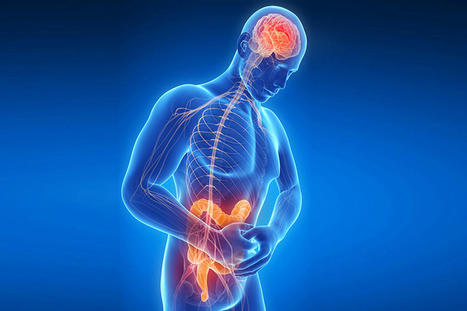
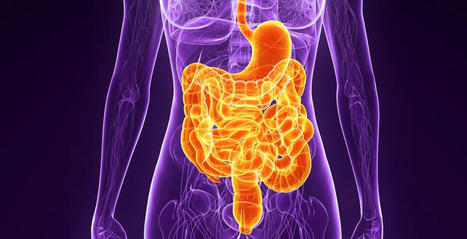
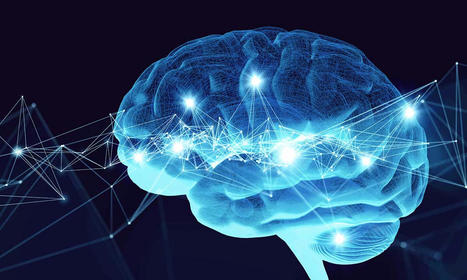
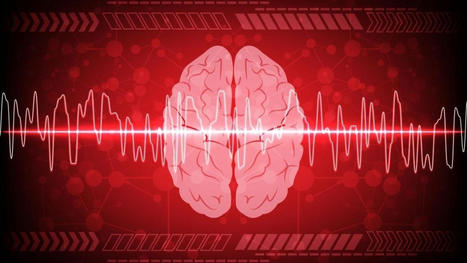

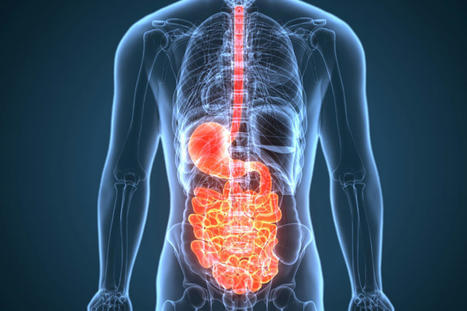


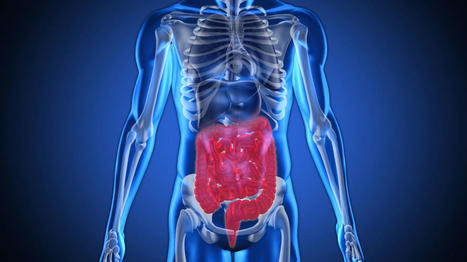
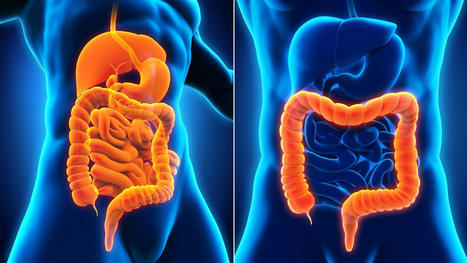



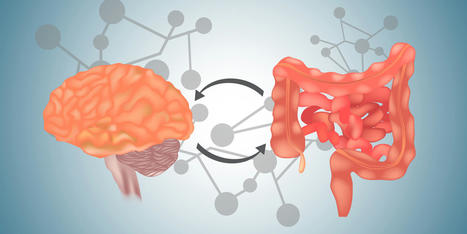
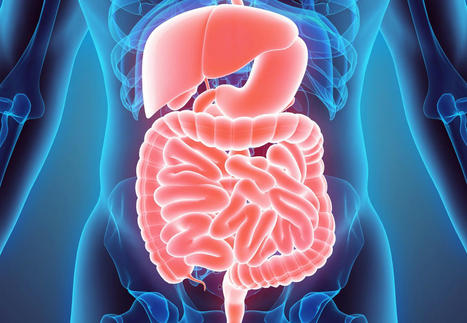
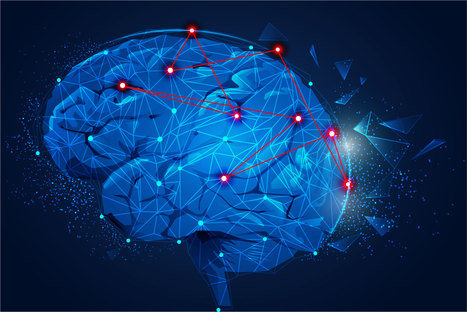





Dr. Alex Jimenez gives an insightful overview of how the effects of metainflammation in the gut can cause harm to the body. If you have any questions or concerns, please call Dr. Jimenez at 915-850-0900.